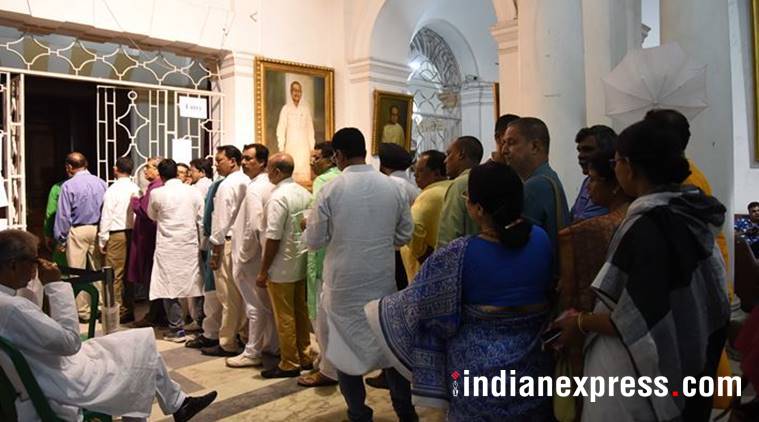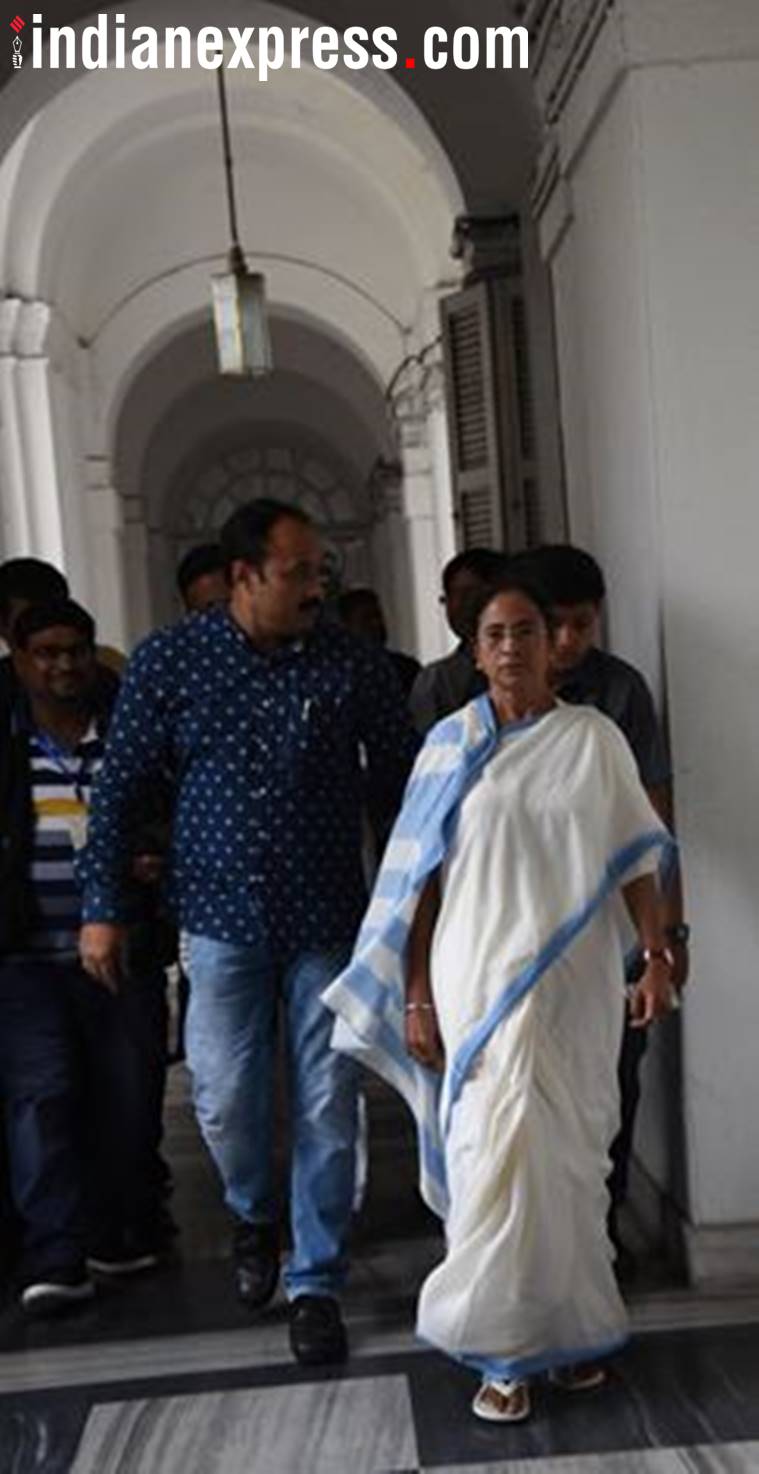 Rajya Sabha elections undergoing at West Bengal assembly (Express Photo by Subham Dutta)
Rajya Sabha elections undergoing at West Bengal assembly (Express Photo by Subham Dutta)
Claims of cross-voting marred elections to Rajya Sabha in Uttar Pradesh, Karnataka and Jharkhand Friday and the Jharkhand Opposition even approached the Election Commission in New Delhi, complaining about cross-voting from their ranks. In Uttar Pradesh, a tantalizing numerical contest was on between the ruling BJP and the Opposition combine of SP-BSP-Congress for one seat. On the remaining nine seats, BJP candidates were set to take eight and SP one on the basis of secured numbers required to win on first preference votes.
For the tenth seat, BSP’s Bhimrao Ambedkar was locked in a keen contest with BJP’s additional candidate Anil Agrawal. While the numbers from the SP-BSP-Congress combine placed Ambedkar with more first preference votes than Agrawal, both were likely to fall short of the winning number on the basis of first preference votes. Their contest was set to escalate to counting for second preference votes.
The SP-BSP-Congress combine’s numbers suffered a setback Thursday when two of their legislators could not get relief for release from jail. Additionally, their numbers came under stress after a sitting BSP legislator, Anil Singh, was said to have voted for the BJP candidate. SP’s Nitin Agrawal too had declared he would vote for the BJP. The election agents, sources said, objected to their votes. However, their objections were rejected by the returning officer before starting the counting process in the evening. Sources said the SP-BSP-Congress coalition was hoping there would be cross-voting from legislators of the Suheldeo Bharatiya Samaj Party (SBSP), a partner of the ruling NDA.
 WB CM Mamata Banerjee on the way to cast her vote for the Rajya Sabha election in West Bengal assembly (Express Photo by Subham Dutta)
WB CM Mamata Banerjee on the way to cast her vote for the Rajya Sabha election in West Bengal assembly (Express Photo by Subham Dutta)
Likewise, Jharkhand too saw an Opposition MLA — of the Jharkhand Vikas Morcha (Prajatantrik) — defying the party whip, raising apprehensions of voting for the ruling party candidate. JVM(P), which had decided to vote for Congress candidate Dhiraj Sahu, protested, and requested the returning officer to cancel the vote of its MLA Prakash Ram for not showing his ballot to the authorised agent before polling. The authorised election agent of the JVM(P) lodged a complaint with the Election Commission after the returning officer in Jharkhand rejected his demand to cancel Prakash Ram’s vote. The Congress, too, lodged a complaint with the Election Commission. The Election Commission was meeting in the evening to examine the matter and issue necessary directions for counting in Ranchi for the Rajya Sabha polls from Jharkhand.
While Congress-supported candidates appeared victims of cross-voting in Opposition ranks in UP and Jharkhand, the Opposition JD(S) in Karnataka accused the ruling Congress of horse-trading for its additional candidate. Of the four seats up for grabs in Karnataka, the BJP fielded one candidate while the ruling Congress fielded three. While the BJP has the numbers to secure the victory of its candidate, the Congress has numbers for two secure seats and additional votes for its third candidate. Polling was necessitated with the JD(S) fielding a candidate of its own. Congress hopes for the third candidate hinged on support from seven rebel JD(S) MLAs.
During the voting process in Bangalore, JD (S) leader and former chief minister H D Kumaraswamy accused the returning officer of colluding with the Congress for allowing recasting of votes by two MLAs of the ruling party. This brings to an end biennial elections to 58 Rajya Sabha seats. While nearly three dozen members have already been elected unopposed, polls have been necessitated for 28 seats across six states — Uttar Pradesh (10 seats), West Bengal (5), Maharashtra (6), Karnataka (4), Jharkhand (2) and Chhattisgarh (1).